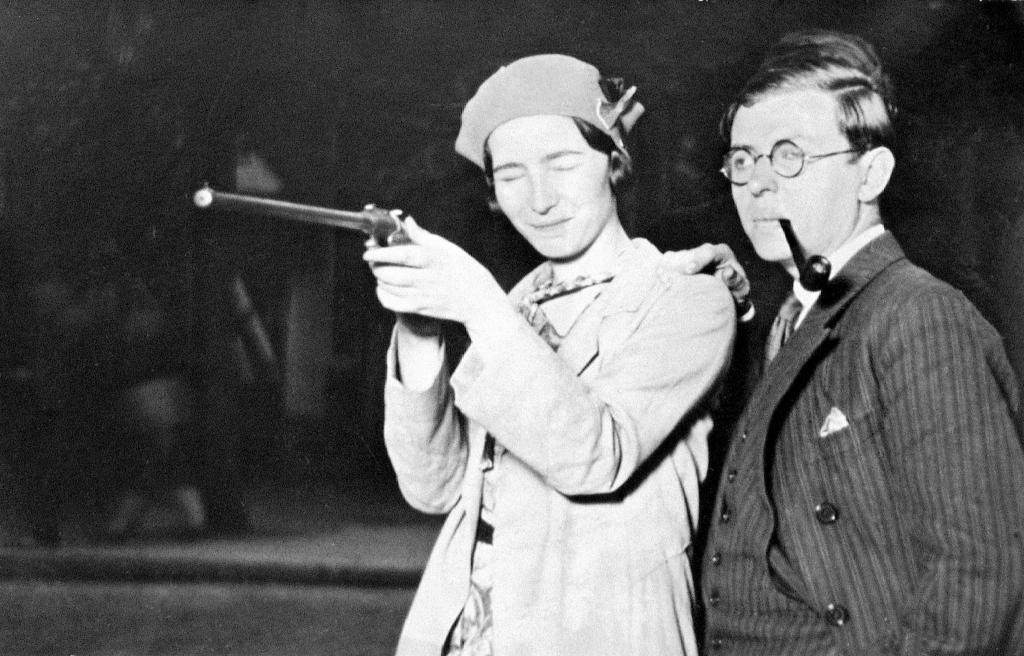@e_flux wrote:
![]()
If you're like me, you had an existentialist phase in high school, full of brooding and dour French books. And if you're like me, you probably haven't read much existentialism since then. For some reason, existentialism—at least in the US—is considered a suitable philosophy for adolescents groping for a sense of purpose and meaning, but not for mature adults, who are expected to read something more sober and rigorous. But in her new book At the Existentialist Café, Sarah Bakewell argues for the enduring relevance of existentialists such as Sartre, de Beauvoir, and Heidegger, because their philosophy concerned the most important, immediate questions of human life: what are we? and what should we do? At the LA Review of Books, Skye C. Cleary has a review of the book:
Bakewell doesn’t specifically instruct the reader about how to use existential philosophy. It wouldn’t be very existential to do so — it’s up to us to work that out for ourselves. However, toward the end of the book, she explains how others have applied their ideas. The American author Richard Wright drew from Sartre and Camus for his novel The Outsider. Ralph Ellison, another American, won the National Book Award for Invisible Man, the story of “an alienated black man making a journey from invisibility to authenticity.” Existential ideas worked their way into films such as Rebel Without a Cause, Godzilla, and Funny Face, in which Audrey Hepburn does what Bakewell calls “a wild existentialist dance” in a Parisian bar while searching for a philosopher. Viktor Frankl and R. D. Laing applied existential thinking to psychotherapy, linking psychological well-being to the search for meaning. Others inspired by existential theory entered politics: Norman Mailer pulled out of the running for existential mayor of New York City after drinking too much, arguing with his wife, and then stabbing her at the launch party. Václav Havel, on the other hand, became the first post-Communist president of Czechoslovakia in 1989; inspired by the thinking of Heidegger and Husserl, Havel took up the spirit of skepticism and rebellion against Communist oppression. His vision, Bakewell writes, was for an “existential revolution,” in which “people’s relationship to the ‘human order’ is overhauled and they can return to the authentic experience of things.”
Bakewell writes that “existentialist ideas and attitudes have embedded themselves so deeply into modern culture that we hardly think of them as existentialist at all” — still, she argues, it’s worth spending time with our existentialist forebears. It’s not just that they’re colorful characters: Bakewell suggests that “perhaps we need the existentialists more than we thought,” and:
*[W]hen reading Sartre on freedom, Beauvoir on the subtle mechanisms of oppression, Kierkegaard on anxiety, Albert Camus on rebellion, Heidegger on technology, or Merleau-Ponty on cognitive science, one sometimes feels one is reading the latest news. Their philosophies remain of interest, not because they are right or wrong, but because they concern life, and because they take on the two biggest human questions: *what are we? and what should we do?**
These philosophers were asking the same questions we are asking today about politics, and science. They addressed such issues as the right to offend, the right to privacy, freedom of speech, how technology changes our identities, and to what extent we are responsible for who we are and the world we are creating. “Science books and magazines bombard us with the news that we are out of control,” Bakewell writes,
that we amount to a mass of irrational but statistically predictable responses, veiled by the mere illusion of a conscious, governing mind. […] We claim to find it disturbing, but we might actually be deriving a kind of reassurance from it – for such ideas let us off the hook. They save us from the existential anxiety that comes with considering ourselves free agents who are responsible for what we do. Sartre would call that bad faith.
Image of Simone de Beauvoir and Jean-Paul Sartre via Open Culture.
Posts: 1
Participants: 1
